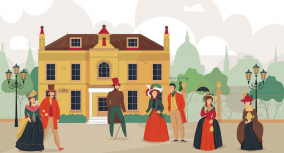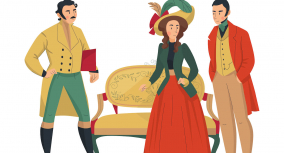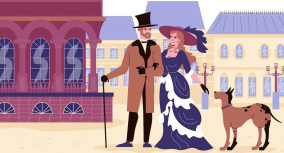Several aspects make Candide the essential novel of the Enlightenment. First, it depicted the absurd nature of our world two centuries before the 20th-century writers would do the same. He explained the civilizing and elevating influence of work. Third, the book reveals the bad qualities of society.
More Information
There are no happy characters in the story. Every person Candide meets tells him a shocking story of their suffering. This abundance of grief makes violence and cruelty a natural state of the world in the readers’ eyes. People differ only by the degree of their unhappiness. Moreover, any society is unfair, and the only ideal country in the book is the nonexistent El Dorado. Voltaire anticipates the 20th century literature by portraying the world as a kingdom of the absurd.
Secondly, Candide continues and philosophizes the motif of work as the course for happiness. Daniel Defoe was the first to introduce this idea in his Robinson Crusoe. Voltaire’s protagonist is too superficial to reach the same conclusion. A wise old Turk tells him: “Our labor preserves us from three great evils — weariness, vice, and want.”
Thirdly, the author spent the second half of his life struggling with the imperfection of the world. His efforts caused his exile and imprisonment, but he did not resent. He exaggerated some traits of all social classes to reveal their vices. He also showed the futility of religion that is not confirmed by actions. Such books as Candide make us stop and think if everything we do and believe is good, correct, and efficient.
Thank you for reading this article! If you are looking for essay title ideas on Candide, take a look at our essay topic collection or try using our title-generating tool.





















